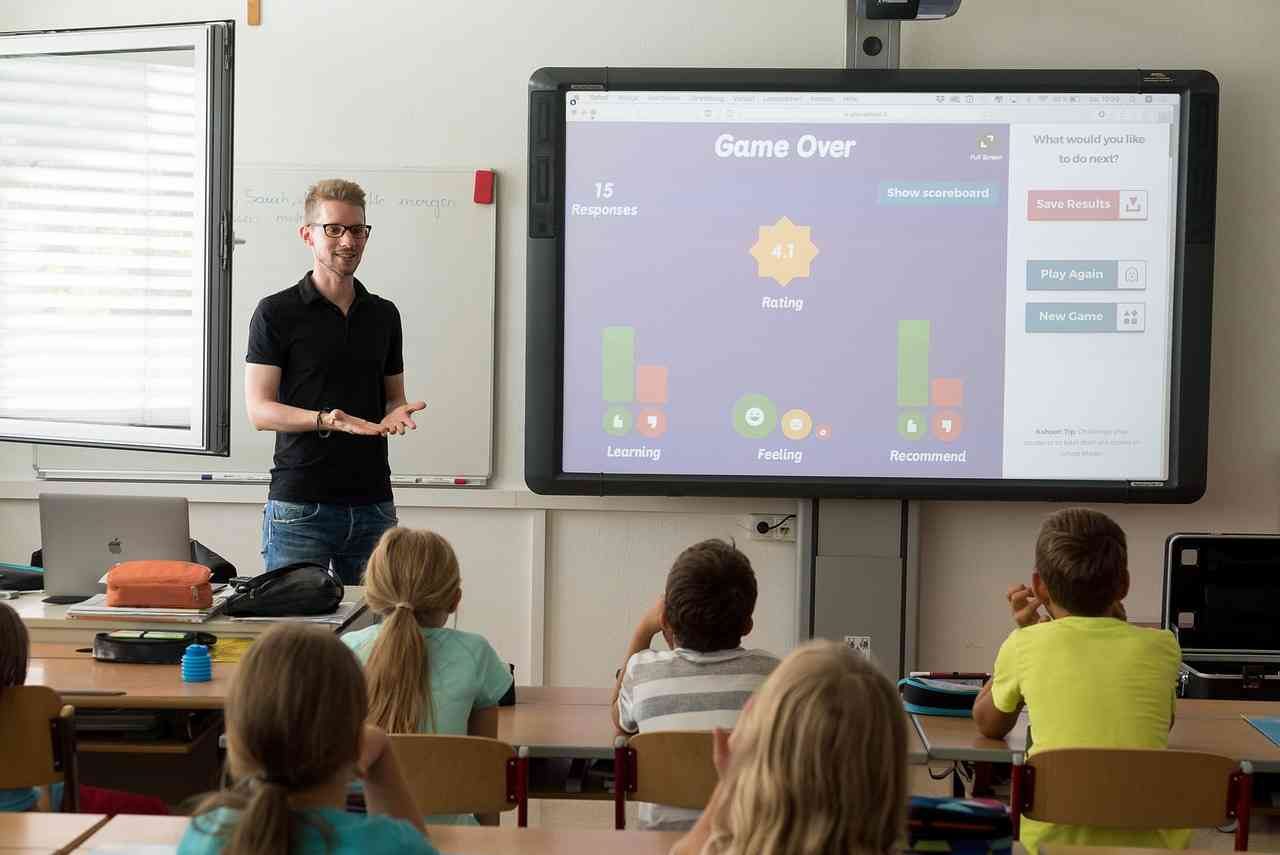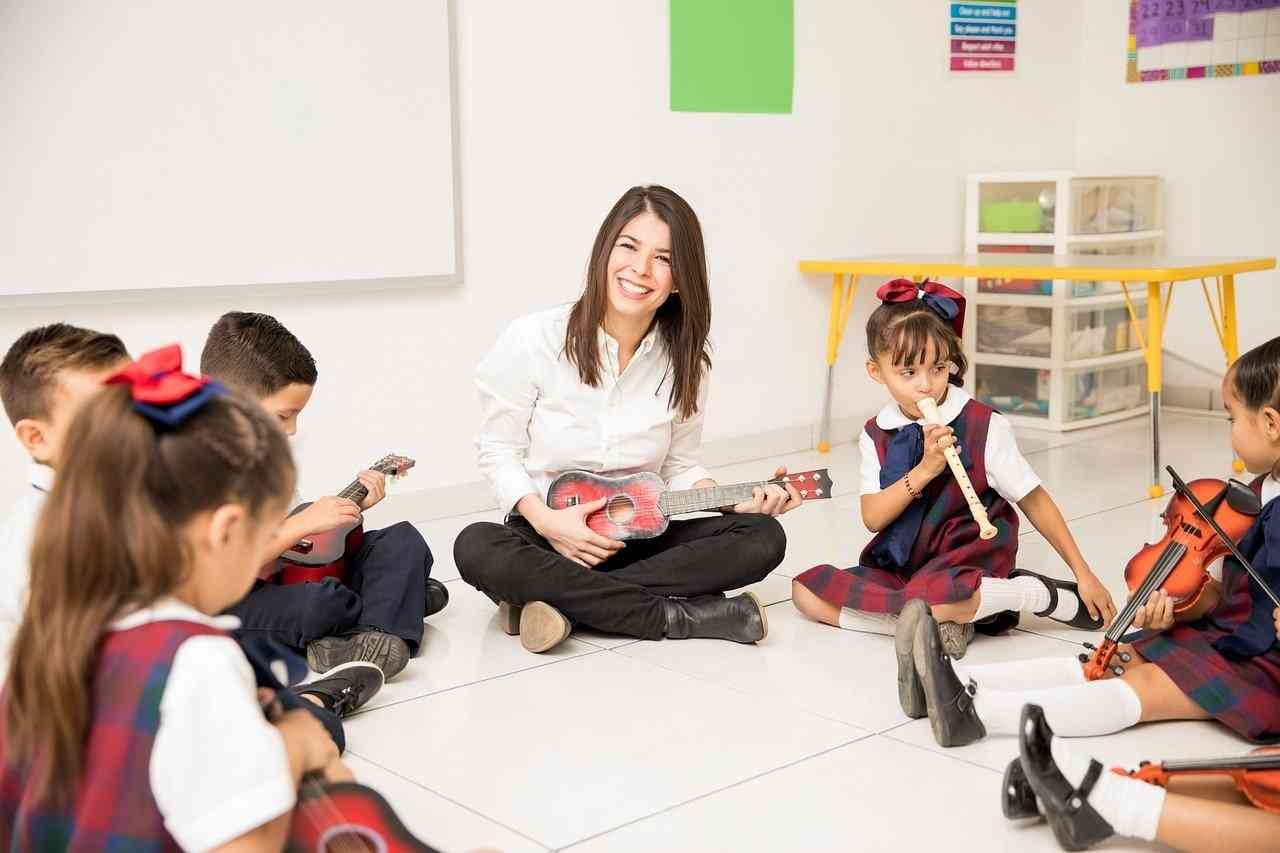Jump To Section
Introduction
Education is one of the most important aspects of our lives, shaping not only our knowledge but also our character and future. Think about your journey through school. Can you recall a teacher who made a significant impact on your life? I bet you can. This article aims to delve into the profound role of a teacher in students life. By understanding this, we can better appreciate the hard work and dedication teachers put into their profession, and perhaps, even be inspired to support and value them more.

Who is a Teacher?
When we talk about teachers, we’re referring to individuals who dedicate their lives to educating others. But a teacher is much more than just someone who stands in front of a classroom and delivers lessons. You and I both know that teaching is a vocation that demands passion, patience, and a genuine desire to make a difference in the lives of students.
A teacher could be someone who teaches you math or science, like the strict but caring teacher you had in high school. Or it could be someone who teaches you life skills and values, like your football coach who taught you about teamwork and perseverance. Essentially, a teacher is anyone who imparts knowledge, skills, and values to others, guiding them toward growth and understanding.
You Might Like: Innovative Methods for Teaching Mathematics to Kindergarten
Over time, the role of teachers has evolved. Historically, teachers were seen as authoritative figures who provided rote learning. However, in today’s world, they are facilitators of learning, encouraging critical thinking and creativity. For instance, your history teacher might use storytelling to make ancient civilizations come alive, helping you connect with the past in a meaningful way.
In essence, a teacher’s role is dynamic and multifaceted, encompassing academic instruction, personal development, and emotional support. By recognizing the diverse functions they fulfill, we can start to see the true value of teachers in our lives and society.
Role of a Teacher in Students’ Life
1. Teachers Provide Academic Guidance and Instruction:

When it comes to academic guidance and instruction, teachers are like navigators guiding students through the sea of knowledge. Imagine you’re sailing in uncharted waters, and your teacher is the one who charts the course, showing you how to read maps (books) and steer your ship (understanding concepts).
They create lesson plans and design activities that help you grasp difficult subjects like math or literature. For example, in science class, your teacher might conduct experiments to show how theories work in real life, making learning more hands-on and engaging.
2. They Help In Our Personal Development:
Teachers also play a crucial role in your personal development. They’re not just there to teach you facts; they’re there to help shape your character and values. Think of them as mentors who guide you through life’s challenges. For instance, when you face a setback, a teacher might encourage you to keep trying and teach you the importance of resilience.
They also foster creativity and critical thinking, pushing you to explore new ideas and perspectives. Through their guidance, you learn not only what to think but also how to think for yourself.
You Might Like: How To Start Your Personal Development Journey: An Ultimate Guide
3. Teachers Give Emotional Support In Our Tough Times:
Beyond academics, teachers provide emotional support, acting as a pillar of strength during tough times. They create a safe and nurturing environment where you feel comfortable expressing your thoughts and emotions. Whether it’s dealing with peer pressure or coping with personal issues, teachers listen to you without judgment and offer guidance.
For example, your English teacher might notice when you’re feeling down and take the time to talk to you, helping you work through your feelings and regain confidence.
4. They Are Responsible For Our Social Development:

Teachers also play a crucial role in your social development. They teach you how to interact with others respectfully and effectively, both inside and outside the classroom. Through group projects and classroom discussions, they encourage teamwork and collaboration.
They promote inclusivity and diversity, helping you appreciate different cultures and perspectives. For example, during history lessons, your teacher might discuss the importance of understanding different cultures, fostering empathy and respect among classmates.
5. They Have Long-Term Impact on Our Career and Personal Growth:
Teachers have a profound influence on your future career and personal growth. Think of them as gardeners who plant seeds of knowledge and nurture your potential. The lessons and skills they teach you in school can shape the path you choose in life.
For example, your science teacher might ignite your passion for biology, leading you to pursue a career in medicine or research. Beyond specific subjects, teachers instill important qualities like perseverance, curiosity, and a love for learning. These qualities not only help you succeed academically but also prepare you to tackle challenges and seize opportunities throughout your life journey.
6. Teachers Have A Significant Societal Contribution:
Teachers also make a significant impact on society as a whole. They contribute to building a knowledgeable and skilled workforce that drives economic growth and innovation. Imagine a community where every child receives quality education from dedicated teachers.
This creates a ripple effect, leading to a more informed and empowered citizenry. Teachers also play a crucial role in promoting values like tolerance, respect, and civic responsibility. By nurturing these values in students, they contribute to creating a harmonious and inclusive society where everyone can thrive.
7. They Help in Building Confidence and Self-Esteem Among Us:

One of the most important roles teachers play is in building your confidence and self-esteem. They recognize your strengths and help you develop them further, whether it’s through praise for a job well done or constructive feedback to improve. Teachers create a supportive environment where you feel safe to take risks and learn from mistakes.
For instance, your art teacher might encourage you to express yourself creatively, boosting your self-confidence and belief in your abilities. Through their encouragement and guidance, teachers empower you to believe in yourself and pursue your dreams with determination.
How to Be a Good Teacher
1. Essential Qualities of a Good Teacher:
Being a good teacher goes beyond knowing your subject matter; it’s about embodying certain qualities that inspire and guide students. First and foremost, empathy is key. Put yourself in your students’ shoes and understand their challenges and aspirations. Patience is another crucial quality—you’ll often need to explain concepts multiple times and support students at their own pace.
Being approachable and friendly creates a positive classroom atmosphere where students feel comfortable asking questions and seeking help. Lastly, passion for teaching and genuine enthusiasm for your subject can ignite curiosity and engagement in your students, making learning more enjoyable and meaningful for everyone.
You Might Like: Top 7 + Effective Teaching Methods For Primary Students
2. Continuous Professional Development:
Teaching is a lifelong learning journey, and continuous professional development is essential for staying effective and relevant in the classroom. This involves keeping up with educational trends, attending workshops and conferences, and seeking opportunities for further education or certifications.
Engaging with peers and mentors can also provide valuable insights and support. By constantly evolving and improving your teaching skills, you not only enhance your own professional growth but also create better learning experiences for your students.
3. Make Learning Easy And Fun:

Fostering a love for learning is perhaps the most rewarding aspect of teaching. Create lessons that are engaging, relevant, and inspiring—show students the real-world applications and importance of what they’re learning. Incorporate creativity and variety into your teaching methods to keep students curious and motivated.
Celebrate achievements and progress, both big and small, to build confidence and a positive attitude towards learning. Encourage exploration and curiosity by providing opportunities for independent study, research projects, or extracurricular activities. By nurturing a love for learning, you instill in students a lifelong passion for knowledge and personal growth.
4. Try To Creating an Engaging Learning Environment For Your Students:
An engaging learning environment is crucial for student success and enjoyment of learning. Incorporate interactive and hands-on activities that cater to different learning styles and abilities. Use technology wisely to enhance lessons and make them more interactive and relevant. Encourage student participation through discussions, group projects, and debates, fostering collaboration and critical thinking.
Establish clear expectations and rules while maintaining a positive and inclusive classroom culture where every student feels valued and respected. By creating a dynamic and supportive learning environment, you can inspire curiosity, creativity, and a love for learning in your students.
5. Try To Build Strong Relationships with Your Students
Building strong relationships with your students is foundational to effective teaching. It’s about creating a sense of trust and respect that encourages open communication and mutual understanding. Take the time to get to know your students as individuals—learn their interests, strengths, and challenges.
Show genuine care and empathy, and be approachable so students feel comfortable coming to you with questions or concerns. By fostering positive relationships, you create a supportive environment where students feel valued and motivated to engage in learning.
6. Manage Classroom Effectively:
Effective classroom management is essential for creating a productive and orderly learning environment. It involves setting clear expectations and rules from the start, and consistently enforcing them with fairness and consistency. Use positive reinforcement to acknowledge good behavior and encourage students to stay on task.
Address disruptions promptly and calmly, redirecting attention back to learning activities. Organization and preparation are also key—have lesson plans ready, materials organized, and activities planned to keep students engaged throughout the lesson. By maintaining a well-managed classroom, you create a conducive space for learning and minimize distractions.
7. Encourage Your Students For Critical Thinking and Problem-Solving:
Encouraging critical thinking and problem-solving skills helps students become independent learners and thinkers. Pose thought-provoking questions that challenge students to analyze information and form their own opinions. Encourage them to explore different perspectives and support their ideas with evidence.
Provide opportunities for hands-on activities, experiments, and real-world applications of concepts to enhance problem-solving abilities. Foster a classroom culture where mistakes are seen as learning opportunities, and encourage students to approach challenges with resilience and creativity. By nurturing critical thinking skills, you empower students to become confident decision-makers and lifelong learners.
Points To Be Noted
The role of a teacher in students’ lives is multifaceted and profound. From providing academic guidance and fostering personal growth to offering emotional support and promoting social development, teachers play a crucial role in shaping not only the minds but also the characters of their students. Their influence extends beyond the classroom, impacting career choices, societal values, and self-confidence.
To be a good teacher is to embody essential qualities like empathy, patience, and passion, while continuously evolving through professional development. Creating an engaging learning environment, building strong relationships with students, and nurturing critical thinking and a love for learning are essential pillars of effective teaching. By recognizing and appreciating the diverse roles and responsibilities of teachers, we can better understand and support their invaluable contribution to education and society as a whole.
To Share The Post
Frequently Asked Questions
Teachers are important in students’ lives because they provide more than just academic knowledge. They serve as mentors, guiding students through challenges, fostering personal growth, and instilling important values. Teachers create a supportive environment where students can learn, grow, and develop essential skills for their future.
Teachers influence students’ careers by providing guidance, knowledge, and inspiration. They help students discover their strengths and interests, offering valuable advice and encouragement. Through effective teaching and mentorship, teachers can inspire students to pursue specific career paths, shaping their future choices and opportunities.
Good teachers possess several essential qualities, including empathy, patience, and passion for teaching. They are approachable and supportive, creating a positive classroom environment where students feel valued and motivated. Effective communication skills, adaptability, and a commitment to continuous learning are also important qualities that contribute to a teacher’s success in nurturing students’ growth and development.




